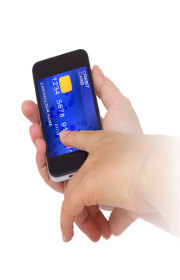Can a credit freeze protect you from identity theft?

Did you see “Identity Thief?” It was a 2013 movie in which an inoffensive businessman (played by Jason Bateman) sets about confronting wolf-in-sheep’s-clothing criminal Diana (Melissa McCarthy). It really was very funny. Unfortunately, real-life identity thefts rarely raise a smile, which is a pity, considering how many there are. In 2012, 16.6 million people — 7 percent of adult Americans — were victims of this crime in one form or another, and 1.1 million of those saw fraudsters open new credit accounts in their names, according to the Bureau of Justice Statistics (BJS). Unsurprisingly, it was those 1.1 million who were most likely to report that, as a result of their identities being stolen, they experienced serious problems at school or work and significant personal distress. Now, there may be a way to better protect yourself from that threat.
Credit cards and identity theft
The BJS puts a lot of crimes in the identity-theft column. For example, if your wayward teenager — or someone who finds your wallet — uses your credit card without your permission, and it’s reported, that would count because they’re impersonating you. Similarly, a crook who buys your card details online following the hacking of a retailer’s IT systems, and then makes online or telephone purchases would also count. Hence the high number of victims.
While such offenses are irritating, and they may take a while to resolve, they rarely leave you out of pocket. One of the unique strengths of credit cards is that you’re legally entitled to withhold payment of disputed charges on your statement during an investigation, and your liability for unauthorized ones is capped at $50, according to the Federal Trade Commission. That makes such fraud the credit card companies‘ problem. With a debit card, it’s your money that’s gone out of your checking account.
The worst sort of identity theft
The time to get really worried is when someone begins to open new credit accounts in your name, the scenario faced by 1.1 million Americans in 2012. By the time you realize what’s happening, the crook can have run up vast debts that creditors believe are owed by you. As “Identity Thief” showed, proving you’re innocent, and separating out your legitimate borrowing from the criminal’s illegitimate can often be incredibly — sometimes, impossibly — difficult.
Some of these events are possibly helped by the hacking of retailer databases, a process that has exposed millions of debit and credit card details over the last couple of years. Worse, Krebs on Security, the specialist website that first uncovered many of those hacking incidents, has discovered that fraudsters can buy people’s essential personal data for next to nothing. It reported in December 2014:
At present, there are multiple shops in the cybercrime underground that sell everything one would need to steal someone’s identity in the United States or apply for new lines of credit in their name — including Social Security numbers, addresses, previous addresses, phone numbers, dates of birth, and in some cases full credit history. The price of this information is shockingly low — about $3 to $5 per record.
A credit freeze can provide protection
Armed with that information a criminal can normally apply for credit. The lender is almost invariably going to run a check on your credit report, and, if it likes what it sees, send out the plastic or whatever. But what if you could lock your credit file so lenders can’t see it?
That’s what’s offered by a service called credit freeze. Each of the Big Three credit bureaus allows you choose to prevent “hard” searches (those used in lending decisions) except those conducted by your existing lenders. And that should stop the huge majority of fraudsters in their tracks.
What are the catches? Well, these are the main ones:
- You have to visit each of those credit bureaus’ websites (Equifax.com, Experian.com and TransUnion.com), find the right page and go through some form filling.
- You should receive a personal identification number (PIN) or password that allows you to lift your freeze either when you’re shopping around for a loan, or just for a single lender for a short period. However, that process can take a while, and you may find yourself locked out of borrowing for an inconvenient time.
- Each freeze comes at a price, which may vary from state to state. Expect to pay up to $10 a go.
Is it worth it? That’s up to you, but it does seem to buy you a lot of peace of mind for just a little effort and cost.
Disclaimer:The information in this article is believed to be accurate as of the date it was written. Please keep in mind that credit card offers change frequently. Therefore, we cannot guarantee the accuracy of the information in this article. Reasonable efforts are made to maintain accurate information. See the online credit card application for full terms and conditions on offers and rewards. Please verify all terms and conditions of any credit card prior to applying.
This content is not provided by any company mentioned in this article. Any opinions, analyses, reviews or recommendations expressed here are those of the author’s alone, and have not been reviewed, approved or otherwise endorsed by any such company. CardRatings.com does not review every company or every offer available on the market.
Published